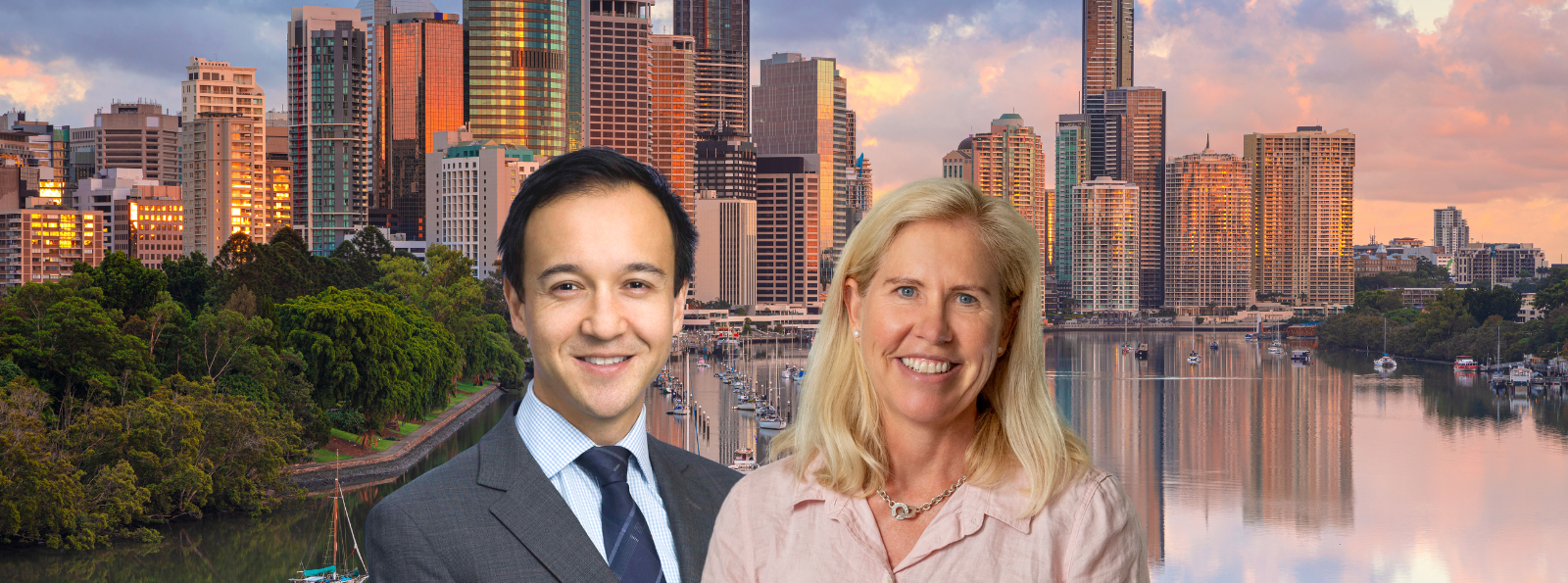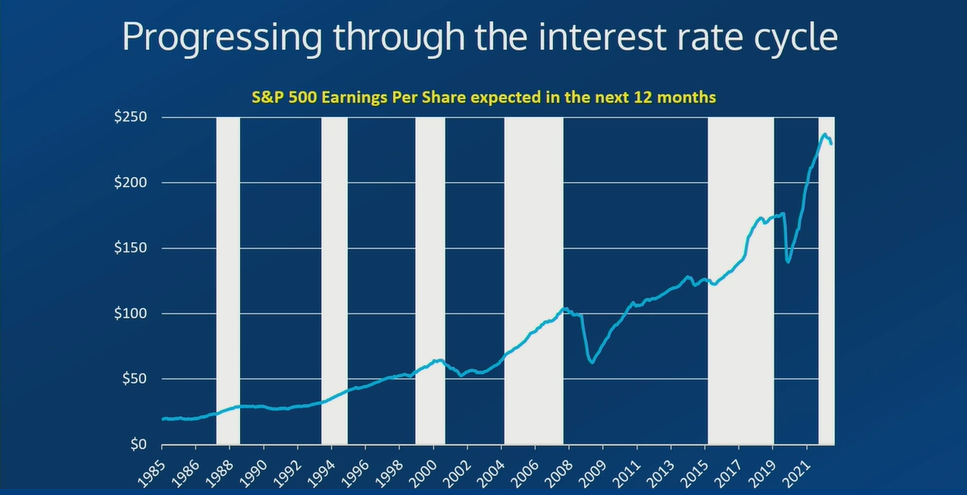Magellan's approach to stocks and sectors for coming markets
The old saying about US economics has been flying about a bit. US sneezes and the world catches a cold. While this makes post-pandemic me shudder a bit for the wrong reasons, the world has definitely caught a cold.
We all know the drill: inflation is persistent and high. Central banks are falling over themselves to hike rates and turn things around. Geopolitical pressures are offering additional challenges, be it the war in the Ukraine or rising tensions in the middle-east over Iran’s nuclear program, amidst others.
The coming year is looking like a repeat of the themes with the added likelihood of recession in parts of the world. Where should investors go in this environment? How can they protect themselves? It can feel a bit overwhelmingly negative.
In a recent webinar from Magellan titled “The weight will be worth it”, Global Portfolio Managers Nikki Thomas and Arvid Streimann had a more positive take on what it all means for investors – and shared the steps they have taken in the Magellan Global Fund. They also ventured into the age old debate – growth v value.

An eye on the future
.png)
Streimann suggests there’s less uncertainty and risk to companies and earnings than a lot of market commentators would have you believe. It’s worth breaking down why this is and it starts with trends between interest rates and company earnings.
The following chart demonstrates how earnings have tracked over time with the white bars representing periods where the US Federal Reserve tightened rates.

Neither increasing interest rates nor inflation have been enough to cause falls in earnings.
“Historically, there has been either of two reasons for earnings to collapse. One being an existing asset price bubble and the other being a negative external shock, often related to oil,” says Streimann.
Streimann has found no evidence of either of this at the current point in time.
While the crypto crash might be one area investors would point to as a bubble, contagion to other markets has been low. He also notes that valuations have come off in the speculative growth end of the market.
There’s also not been a significant negative shock this year – you can see the start of the COVID pandemic was a major external shock for the most recent time earnings fell.
Streimann has also seen some softening of key risks Magellan were monitoring. For example:
- Ukraine and Russia have shown some openness to new attempts at negotiation in recent weeks. It’s not a resolution by any stretch but a positive sign in any case.
- China’s growth has appeared to stabilise at the lower end rather than collapse. Magellan also anticipate the zero-Covid policy will need to be softened in coming months which is good news for growth.
- Magellan were concerned about the potential inflationary impact of economic stimulus should the Democrats maintain majority in both the Senate and House of Representatives in the midterm elections. This concern is now off the table for the short-term.
- The UK currency and government bond crash was resolved by a change in Prime Ministers – and other countries will be forced to learn from what happens when stimulus is implemented at the same time as a central bank trying to rein in inflation.
Streimann has a regional preference for the US. This is where it comes back to that old saying about a sneeze.
“We expect a soft landing or at worst, a mild recession in the US compared to other countries. The US dollar also remains strong and we don’t expect this to fade. The US economy would need to substantially underperform the rest of the world for this to happen, and we see that as unlikely,” says Streimann.
By contrast, he expects a tougher environment in Europe and views it as a riskier area, particularly given it had to swiftly decouple from Russia on the energy front and is likely to now be locked into more expensive contracts with other countries.
The investment implications from all of this?
Streimann says less uncertainty has meant Magellan can release cash and invest more in high quality businesses, they’ve tilted away from companies leveraged to interest rates and they are investing where they have high conviction on a company’s prospects.
The value rotation and the great debate
Releasing cash to invest more in high quality businesses might sound like a value focus. It’s not. Magellan believe in taking the best of both worlds.
“Value works when there is inflation. It has had a good year but at some point, inflation and oil prices will roll over. The key is to invest in quality across both value and growth for resilience,” says Thomas.
What does this look like in practice?
Thomas says they’ve been seeing more opportunities in growth at the moment because the market has punished these companies, but they are selective about what they use.
“For example, there’s a big bucket of unprofitable tech firms that thrived due to cheap money. A lot of these have suffered and they won’t ever recover. We prefer companies exposed to secular tailwinds around specific styles of technology. It could be a tech story in a different sector like Intercontinental Exchange (NYSE: ICE) which is a tech story in a financial stock,” says Thomas.
The key structural growth trends Magellan look at include digitilisation, the global infrastructure build-out and quality resilient compounders with pricing power.
The portfolio itself is broken into factor exposures: cash, defensive, defensive growth, growth, cyclical, cyclical growth, positive interest rate sensitive and negative interest rate sensitive.
Some of the companies Magellan has identified and recently invested in across these factors follows.
- HCA Healthcare (NYSE: HCA): this is a leading US hospital operator and categorised as cyclical growth. It is seen as cyclical because the payer mix moves between commercial (more attractive) to government sponsored (less attractive) depending on the economic environment. Magellan sees positive long-term prospects in the stock, particularly as people return to the hospital system for delayed surgeries post the COVID pandemic and were able to purchase it at a good price.
- Brookfield Asset Management (NASDAQ: BAM): this is one of the world’s largest alternative investment managers and classified as growth. It is a diverse exposure and Magellan also like that it is involved in the structural growth trend of the energy transition.
- Chipotle Mexican Grill (NYSE: CMG): a US fast-food chain operating in the US, Canada, France, United Kingdom and Germany and classified as defensive. Thomas describes it as a ‘sleep at night’ stock. It is a quality compounder with a strong brand and pricing power. Consumers see it as ‘good value’ which will see its growth continue, even in a tough economy.
- ASML Holding (NASDAQ: ASML): a leader in the semiconductor chip space covering hardware, software and services. Thomas anticipates significant growth for ASML and notes that it currently has a backlog in orders worth €38bn which will take some time to clear. It plays into an essential trend for the internet of things and the car industry.
These companies all meet Magellan’s view of high quality with long term underlying earnings drivers.
Positioning for markets
“2023 will be a hard bear market. It will pass. This is a good time to be in global equities. There are compelling opportunities out there,” says Thomas.
Streimann agrees. There is a reason after all Magellan has reduced its cash holdings to take advantage of buying opportunities.
That said, this isn’t about throwing investors into risk.
Thomas points out that at the end of 2021, the margin of safety for the Magellan Global Fund was 20%. As of now, it’s 30%. It’s about taking calculated positions on top quality companies across cycles, not about taking bets.
It’s an approach that investors might want to consider themselves. Position for the long term, rather than just the next few months or year. And following that, perhaps Magellan’s advice on style settles the debate between value v growth. A long-term multi-cycle portfolio needs both value and growth to succeed.
Investing in the worlds best companies
Magellan do not look for stocks that might come into short-term favour on stock markets. They believe that successful investing is about finding, and owning for the long term, companies that can generate excess returns on capital for years to come. Find out more here

2 topics
5 stocks mentioned
1 fund mentioned
1 contributor mentioned

